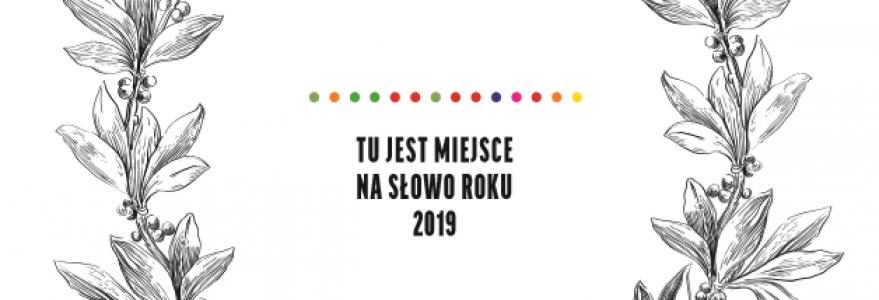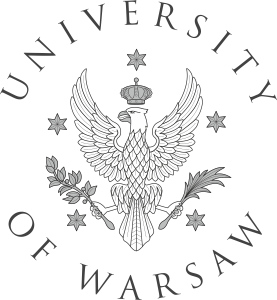Seminar CeNT 20.12.2019
17 grudnia 2019The Centre of New Technologies invites to a seminar by
Prof. Michael Feig
Michigan State University, USA
Title: Cellular crowding near membranes: Implications for biomolecular diffusion and clustering
Date: 20 December (Friday) 2019 at 12 p.m.
Venue: Centre of New Technologies, Banacha 2C,
Lecture Hall 0142 (ground floor)
Host: Prof. Joanna Trylska
The interior of biological cells is highly crowded with very high macromolecular concentrations that impact biomolecular stability, diffusion, and solubility. While there is some understanding of these effects inside the cytoplasm, very little is known how the presence of membrane surfaces modulates crowding effects. Biological membranes represent the outer boundary of cells, but they are also present inside cells to contain organelles and in the endoplasmic reticulum or Golgi apparatus. To gain insights into how a crowded environment may interact with membrane surfaces, results from computer simulations of concentrated protein solutions near phospholipid bilayers over microsecond time scales are presented1. The main insight is that the presence of the membrane appears to create a protein depletion zone at the membrane surface that leads to increased clustering and slower diffusion away from the membrane but allows proteins that enter this zone to overcome the slow diffusion that is otherwise encountered in the crowded bulk environment. In addition, proteins that do interact with the membrane surface appear to induce curvature. The finding is similar to crowding-induced membrane bending reported previously but without requiring specific membrane-interacting protein domains. The results are further interpreted via coarse-grained models to access larger spatial and temporal scales and results with pure lipid bilayers are compared with simulations where an integral membrane protein was embedded into the bilayer.
1G. Nawrocki, W. Im, Y. Sugita, M. Feig: Clustering and Dynamics of Crowded Proteins near Membranes and Their Influence on Membrane Bending. PNAS (2019), 116, 24562-24567
Christmas with the Psychological Counselling Centre
Psychologists from the UW Psychological Counselling Centre (CPP) will be available for UW students and employees also around Christmas time. Watch a video with Dr. Szymon Chrząstowski encouraging those who do not feel comfortable in this period or face some difficult situations, to come for short conversations.
Christmas is a time of joy and happiness. However, some people feel stressed while thinking of Christmas.
“For many people Christmas is a great opportunity to relax, meet loved ones and finally have some joy. Some people, however, are very nervous about the holidays, they are nervous about meeting their loved ones, they fear how these holidays will go,” says Dr. Szymon Chrząstowski, head of CPP.
Being on an international exchange programme may be a great experience, but it is also a challenge. The new environment, new relationships, and language barriers can be overwhelming and not easy to handle. If you experience an unpleasant situation or simply feel stressed because you can not spend this time with your family, contact CPP to receive professional help.
Those who stay in Warsaw over a Christmas holiday break and would like to talk to a psychologist can visit the centre.
Walk-in clinics:
23rd December at 12:00-15:00
30th December at 12:00-13:00
2nd January at 17:00-18:00
3rd January at 12:00-13:00
It is also possible to arrange an online appointment via Skype.
The Psychological Counselling Centre of the University of Warsaw provides confidential short-term counselling, crisis intervention services and evaluation of needs for academic support for all English-speaking students of the University of Warsaw. More information >>
Source: www.en.uw.edu.pl
Job offer for a PhD student position
11 grudnia 2019Position of PhD student in the project entitled „Innovative Nanostructured Functional Materials by Combinatorial Methods of Directed Self-Assembly of Block Copolymers”. Project funded under the First Team program by the Foundation for Polish Science (FNP). Project leader: Dr. Paweł W. Majewski. Deadline for applications: 24 December 2019. For more info see >> pdf
UW congratulates Olga Tokarczuk
09 grudnia 2019On 9th and 10th December, at the University of Warsaw, there will be an action called “UW congratulates Olga Tokarczuk”. Members of the UW academic community will have an opportunity to congratulate Nobel Prize laureate. The author of “The Books of Jacob” (Księgi Jakubowe) or “Flights” (Bieguni) graduated from the UW Faculty of Psychology.
On 10th December, during the Nobel Prize award ceremony at Konserthuset Stockholm, Olga Torakczuk will obtain the award. Polish writer is recognised as one of the most distinguished representatives of modern literature in Poland and the world. She holds many Polish and international awards. In 2018, she won the Man Booker International Prize for her novel “Flights” (Bieguni). This book also won the Nike Award, Poland’s top literary prize, in 2008. In 2015, Olga Tokarczuk received another Nike Award for the impressive historical novel “The Books of Jacob” (Księgi Jakubowe).
In 1987, Olga Tokarczuk graduated from the University of Warsaw Faculty of Psychology. She is the 15th woman to receive the literature prize and the 6th from Poland. Among the laureates are also other two graduates of UW, namely Henryk Sienkiewicz, and Czesław Miłosz.
On the occasion of Nobel prize-giving to Olga Tokarczuk by the Nobel Prize Committee, UW undertakes the action “UW congratulates Tokarczuk”. It aims to encourage students and employees of the university to express their congratulations to the outstanding writer. One can do this by taking a photo using a specially prepared photo frame. The frame refers to Tokarczuk’s works and includes a quotation of the writer’s letter to Prof. Marcin Pałys, UW rector.
Each person taking part in this activity is invited to share their photos on social media using hashtags UWcongratulatesTokarczuk and NobelPrizeLaureateisfromUW. The UW Press Office organises the action.
Photos can be taken on 9th December at 9:00-10:00 on the UW main campus near the Old Library building and the main gate. On 10th December at 11:00-13:00 in front of the University of Warsaw Library entrance.
The Swedish Academy had decided to award the 2018 Nobel Prize in Literature to Olga Tokarczuk “for a narrative imagination that with encyclopedic passion represents the crossing of boundaries as a form of life.” The Nobel Prize in Literature for 2019 went to the Austrian writer, Peter Handke.
The Nobel Prize award ceremony will be held at 16:30 in Stockholm. It will be streamed live on the Nobel Prize website nobelprize.org.
One can follow the action on the university profiles and social media.
https://twitter.com/UniWarszawski
https://www.facebook.com/fanpageUW
https://www.instagram.com/uniwersytetwarszawski/
Source: www.en.uw.edu.pl
Invitation to Christmas meeting 17.12.2019
06 grudnia 2019On behalf of CeNT UW Director, Prof. Ewa Bulska and UOTT Director, Dr. Robert Dwiliński, we have the pleasure of inviting you to the Christmas Meeting of the Ochota Campus units, 17 December 2019, 2.00 pm in the CeNT UW atrium hall, ul. S. Banacha 2c.

The Polish Word of the Year – poll

Until 31st December, one can vote for a word or expression which, in their opinion, has great resonance for the year 2019. Słowo Roku 2019 (Word of the Year 2019) will be announced at the beginning of January by the UW linguists who organise the event.
What Polish word has attracted a great deal of interest over the last 12 months? Everyone is invited to either choose a word or expression from the list posted on the website http://sloworoku.uw.edu.pl/ or submit own proposals.
The candidates for the Word of the Year might be nouns, adjectives, verbs, etc. However, organisers will not accept surnames, proper names of people, places and institutions.
The poll is organised for the 9th time. The winner of the last edition is “konstytucja” (constitution).
This year proposals include, e.g. “klimat” (climate), “nauczyciel” (teacher), and “strajk” (strike), “wybory” (elections), “nienawiść (hatered), “hulajnoga” (scooter), and “równość” (equality).
Other countries such as the United Kingdom, Germany, France and the Czech Republic also choose their word of the year. Recently, the editors of “Oxford English Dictionary” have named “climate emergency” as its 2019 Word of the Year. Collins Dictionary, for example, picked “climate strike” as its word.
UW linguists are among a panel of experts who choose the word. The panel includes: Prof. Jerzy Bartmiński (Maria Curie Sklodowska University in Lublin), Prof. Jerzy Bralczyk (the University of Warsaw), Prof. Katarzyna Kłosińska (the University of Warsaw), Prof. Ewa Kołodziejek (the University of Szczecin), Prof. Marek Łaziński (the University of Warsaw), Prof. Andrzej Markowski (the University of Warsaw), Prof. Jan Miodek (the University of Wrocław), Prof. Renata Przybylska (the Jagiellonian University, Cracow) and Prof. Halina Zgółkowa (Adam Mickiewicz University in Poznań).
Vote for the Polish Word of the Year 2019 (Słowo Roku 2019) >>
Source: www.en.uw.edu.pl
Seminar CeNT 6.12.2019
02 grudnia 2019The Centre of New Technologies invites to a seminar by
Anna Sarnowska, M.D., Ph.D
Head of Translative Platform for Regenerative Medicine, Mossakowski Medical Research Centre, Polish Academy of Sciences, Warsaw
Title: Cell therapy in clinical and preclinical research
Date: December 6th, 2019 at 12 p.m.
Venue: Centre of New Technologies, Banacha 2C,
Lecture Hall 0142 (Ground floor)
Host: prof. Marta B. Wiśniewska
Abstract:
In recent years, we have seen the rapid development of regenerative medicine based on the stem cells application. Over the last years, procedures have been intensively developed to enable effective derivation and cultivation of mesenchymal stem cells (MSCs) for future clinical applications. At the same time, numerous studies have confirmed the therapeutic efficacy of MSCs based on their secretion and immunomodulatory effects although there are still only few diseases where MSC application lead to restore normal function. Unfortunately, the rapid commercialization of such treatment is not always supported by basic knowledge and conducted in accordance with the principles of „evidence-based medicine.” To move regenerative medicine into the realms of mainstream medicine, it should be clearly indicated what has been achieved so far in regenerative medicine, explain to patients the possible therapeutic effect of MSC and treat most stem cell applications as experimental therapies. In order to achieve the main goal of stem cell based therapy – replacing damaged cells with new injected cells, basic research concerning MSC isolation, cultivation or preconditioning procedures before transplantation should be conducted.
Our results show significant differences in phenotype, proliferation rate, CFU-F formation and the number of senescent cells between MSC populations obtained with different methods of isolation. Moreover the method of cell isolation may substantially affect their properties, differentiation abilities and presumably the neuroprotective properties. Therefore the efficiency cannot be the main determinant to choose the method of isolation.
Additionally, our experiments showed that the strongest ability for neuroprotection was provided by freshly isolated cells and the first cohort of migrating MSC cells (passage O). Undifferentiated, SRTF expressing MSC, capable to time-locked proliferation, migration and ultimately to neural differentiation are the most effective in various therapeutic transplantation models. To keep the cells in undifferentiated state culture conditions e.g. oxygen concentration are crucial.
Job offer for a PhD student position
Position of PhD student in the project entitled „Modelling of crystal and magnetic local structure in potential quantum spin liquid (QSL) alpha-RuCl3” financed by National Science Centre (NCN) is open for application. Project leader: dr Wojciech Sławiński. Deadline for applications: 15 December 2019. For more info see >> pdf
An announcement for post-doc position
26 listopada 2019Position of post-doc (adiunkt) (a group of science positions) in the project entitled “From ion-selective nanofibers optical and electrochemical sensors towards „lab on a mat”” financed by National Science Centre, Poland, is open for application. Project leader: prof. dr hab. Agata Michalska-Maksymiuk. Deadline for applications: 15 January 2020. For more info see >> pdf
An announcement for post-doc position
Position of post-doc (adiunkt) (a group of science positions) in the project entitled “From ion-selective nanofibers optical and electrochemical sensors towards „lab on a mat”” financed by National Science Centre, Poland, is open for application. Project leader: prof. dr hab. Agata Michalska-Maksymiuk. Deadline for applications: 15 January 2020. For more info see >> pdf

